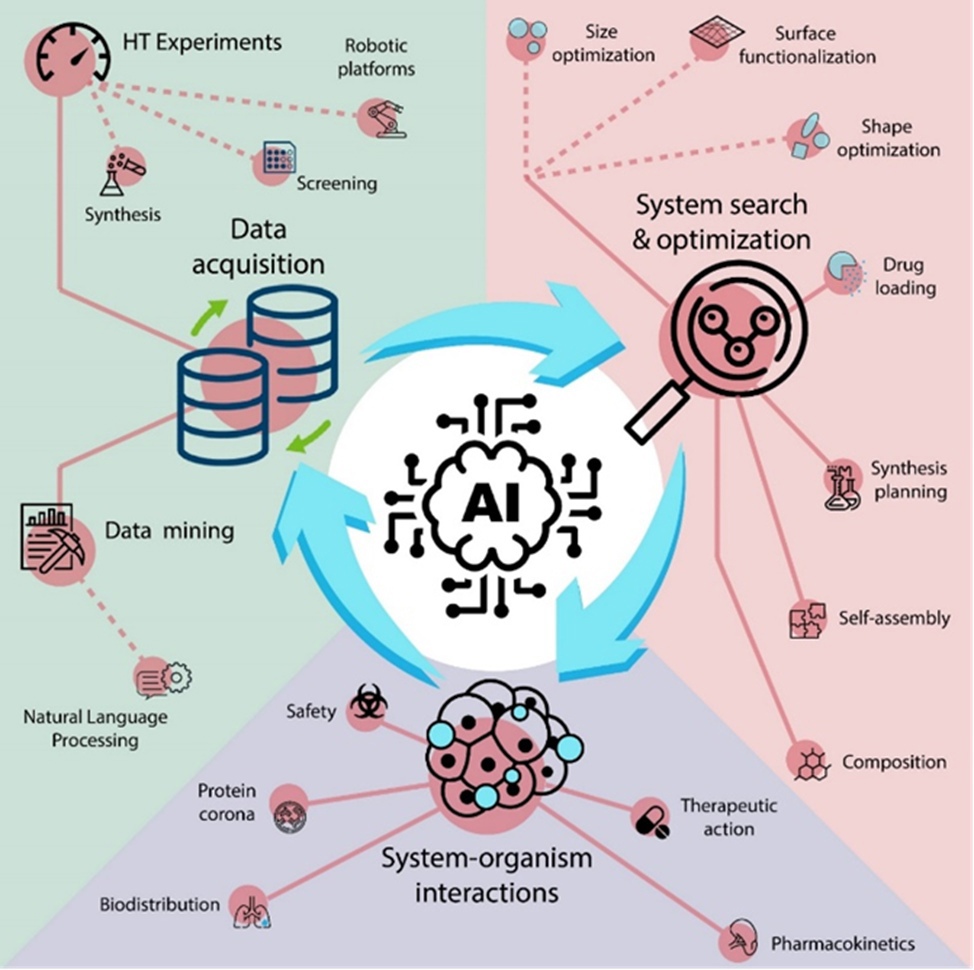Авторы: Серов Н.С., Виноградов В.В.

Advanced Drug Delivery Reviews, 2022, DOI: 10.1016/j.addr.2022.114194
Abstract
The technology of drug delivery systems (DDSs) has demonstrated an outstanding performance and effectiveness in production of pharmaceuticals, as it is proved by many FDA-approved nanomedicines that have an enhanced selectivity, manageable drug release kinetics and synergistic therapeutic actions. Nonetheless, to date, the rational design and high-throughput development of nanomaterial-based DDSs for specific purposes is far from a routine practice and is still in its infancy, mainly due to the limitations in scientists’ capabilities to effectively acquire, analyze, manage, and comprehend complex and ever-growing sets of experimental data, which is vital to develop DDSs with a set of desired functionalities. At the same time, this task is feasible for the data-driven approaches, high throughput experimentation techniques, process automatization, artificial intelligence (AI) technology, and machine learning (ML) approaches, which is referred to as The Fourth Paradigm of scientific research. Therefore, an integration of these approaches with nanomedicine and nanotechnology can potentially accelerate the rational design and high-throughput development of highly efficient nanoformulated drugs and smart materials with pre-defined functionalities. In this Review, we survey the important results and milestones achieved to date in the application of data science, high throughput, as well as automatization approaches, combined with AI and ML to design and optimize DDSs and related nanomaterials. This manuscript mission is not only to reflect the state-of-art in data-driven nanomedicine, but also show how recent findings in the related fields can transform the nanomedicine’s image. We discuss how all these results can be used to boost nanomedicine translation to the clinic, as well as highlight the future directions for the development, data-driven, high throughput experimentation-, and AI-assisted design, as well as the production of nanoformulated drugs and smart materials with pre-defined properties and behavior. This Review will be of high interest to the chemists involved in materials science, nanotechnology, and DDSs development for biomedical applications, although the general nature of the presented approaches enables knowledge translation to many other fields of science.
DOI: 10.1016/j.addr.2022.114194
Read Full: